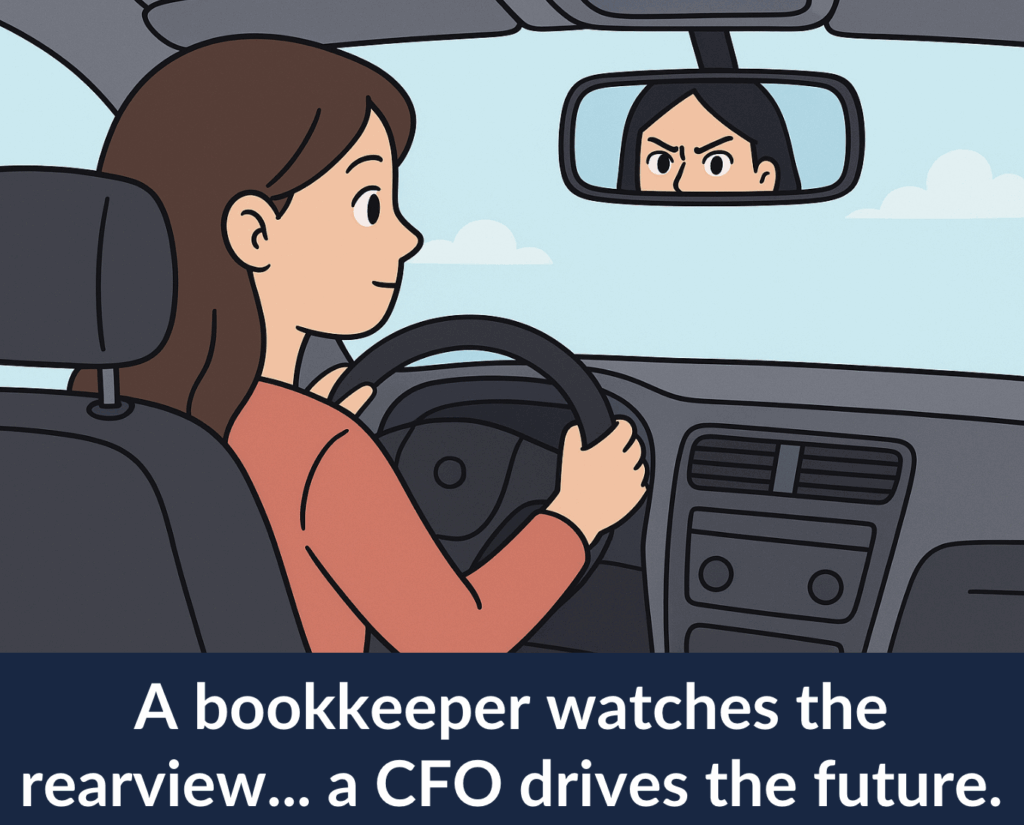More Than Numbers: The CFO of the Future
For years, the Chief Financial Officer was seen as the guardian of spreadsheets and budgets. But in today’s business environment, that picture is outdated. A great CFO is no longer just a keeper of the books — they are a…
For years, the Chief Financial Officer was seen as the guardian of spreadsheets and budgets. But in today’s business environment, that picture is outdated. A great CFO is no longer just a keeper of the books — they are a visionary leader, a strategic partner, and a catalyst for growth. The best CFOs combine financial discipline with forward-thinking insight. They are the bridge between vision and execution, transforming numbers into strategies that fuel scale, innovation, and resilience.

What Defines a Great CFO Today?
1. A Strategic Architect
They don’t just report on performance; they design the financial roadmap that makes ambitious goals possible. Whether preparing for rapid growth, managing risk, or positioning for an acquisition, a great CFO knows how to align financial strategy with business strategy.
2. A Truth-Teller in the Room
Great CFOs bring candor, even when it’s uncomfortable. They’re willing to name misaligned pricing, overextended budgets, or blind spots that could derail growth. Their honesty provides clarity that empowers leadership teams to act with confidence.
3. A Builder of Systems and Teams
Today’s CFOs don’t just “fix the numbers.” They create scalable systems, build dashboards that provide real-time visibility, and mentor finance talent into stronger leaders. They elevate the entire finance function so the organization can run with confidence.
4. A Calm Presence in Complexity
In high-stakes moments — whether negotiating with investors, navigating a pivot, or managing cash through uncertainty — a strong CFO is the steady hand. They bring order to chaos and guide teams with clarity and conviction.
5. A Champion of Growth and Valuation
Modern CFOs think beyond compliance. They focus on enterprise value, help refine pricing and product strategies, and ensure resources are allocated toward the highest-impact opportunities. Their work drives not just stability, but sustainable growth.

Why This Matters Now
Businesses today, especially Managed Service Providers (MSPs), face volatility, rapid technology shifts, and rising expectations from investors and customers alike. A finance leader who simply reports history is not enough. What organizations need is a CFO who can interpret complexity, chart a path forward, and give leaders the confidence to take bold action.
The Vision
The CFO of the future is not defined by debits and credits. They are defined by the clarity they create, the strategic choices they enable, and the growth they unlock. They are equal parts strategist, operator, mentor, and truth-teller.
When you find this caliber of financial leadership, you don’t just get clean books — you get a stronger business, a sharper strategy, and a team empowered to achieve more.
Ready to take the next step? Connect with Next Level Now and discover how our embedded finance leaders can help you gain the clarity, control, and confidence you need to grow.
Contact Next Level Now to start the conversation!
Continue learning with Next Level insights
New M&A Insights Podcast Drop: Why Your Finance Function Is Worth Two Turns of EBITDA
Most MSPs run their business from the bank account. And that’s exactly why they leave money on the table. In the newest episode of M&A…
Next Level Now Becomes Women-Owned Under CEO Brandi Bonds; Sonja Fridell Pomerleau Named Equity Partner & COO
Next Level Now (NLN), a leading provider of CFO-led financial and operational services for growth-focused companies, today announced a defining milestone in its evolution. Brandi…
The 7 Levers Every Business Must Master to Build a Financial Flywheel
Why CFO-Level Insight Only Matters When It Drives Owner-Level Action In today’s fast-moving business environment, financial clarity is no longer optional, it’s a competitive advantage….
Let’s Build the Right Financial Strategy Together
Tell us about your business, and we’ll guide you toward the best level of CFO and accounting support tailored to your growth stage.

Choose your starting point today and scale as your company grows.
Our team will reach out to discuss your needs and design a financial plan that works for you.
"*" indicates required fields



